
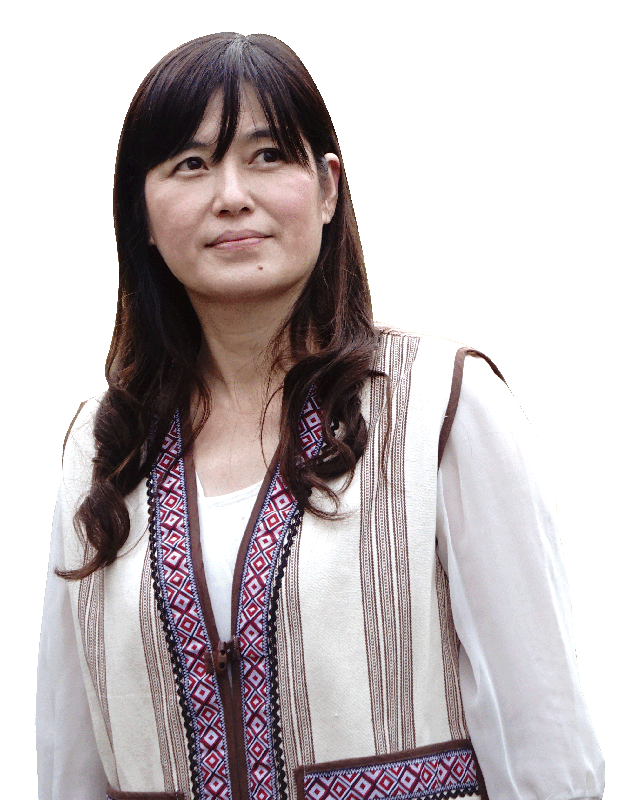
“What we fight against is not the mainstream society as a whole, but the trauma we have suffered from history.”
Like a drizzling spring rain that moistens the world silently, Yi-Maun Subeq is moving forward confidently with a gentle strength and firm resolution on her path to promoting indigenous health care in Taiwan.
“Yi-Maun, the pain is killing me.”
In the hospital, hearing the fellow male Truku lying in bed utter these words in tears, Yi-Maun Subeq could not help but feel agonized.
The man is a construction worker hospitalized for hip joint surgery. This is not his first time to receive the surgery, though, as he has had his hip joint replaced once due to occupational injuries. But he resumed his work immediately after the first surgery because he is the only bread earner of his family. The arduous work caused the displacement of the hip joint, so he was in hospital again to fix the problem. During his hospitalization, however, he was neglected by the medical staff that would not give him enough painkillers, leaving him to suffer the pain. “I’ve just got out of surgery, and why did they say they wouldn’t give me painkillers simply because I am a drinker?” he complains.
Unable to answer his question about the treatment he receives, Yi-Maun feels equally at a loss on how to explain why a patient like him has to suffer such severe pain simply because of his indigenous ethnicity.
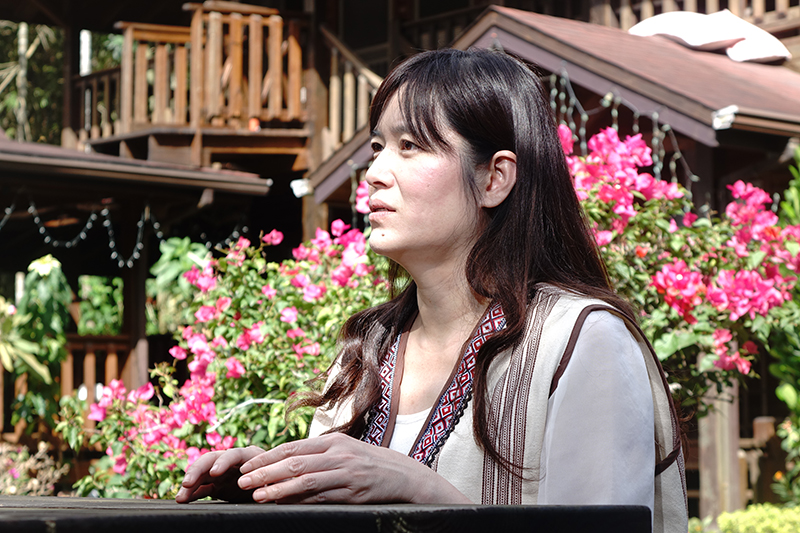
Indigenous Consciousness Enlightened
by Discrimination
Born in a multicultural family with a Non-indigenous father and a Truku mother, Yi-Maun was raised in Guofu Borough, a mixed community in Hualien City where the Sakizaya and Non-indigenous live. Since her childhood, the sharp-featured Yi-Maun has been aware of the prejudice and differential treatment imposed by the mainstream on indigenous peoples. She remembers, as a child, she was rejected by the parents of her non-indigenous friends. Their harsh words still linger in her mind until now: “You, a barbarian child, do not come to play with my kid!” It is such an unpleasant experience that sows the seed of indigenous consciousness in her young, ignorant mind.
As she grows older, to ease the burden on her family, Yi-Maun chooses to go to junior nursing college and becomes a hospital nurse after graduation. In the course of her clinical work, she has witnessed the discrimination commonly held against indigenous communities in Taiwan’s healthcare system.
Take health care workers as an example. Most of them would assume that indigenous people have a liking for drinking, smoking, and chewing betel nut. “They tend to presume that painkillers won’t be effective in these patients, and may even underestimate the pain and ignore their suffering.”
Turn back to the case of the aforementioned Truku man. When he attempts to express how painful he is, the nurse simply asks him to be patient and say, “You have to bear with it. You must be a heavy drinker so that the pain gets so unbearable.”
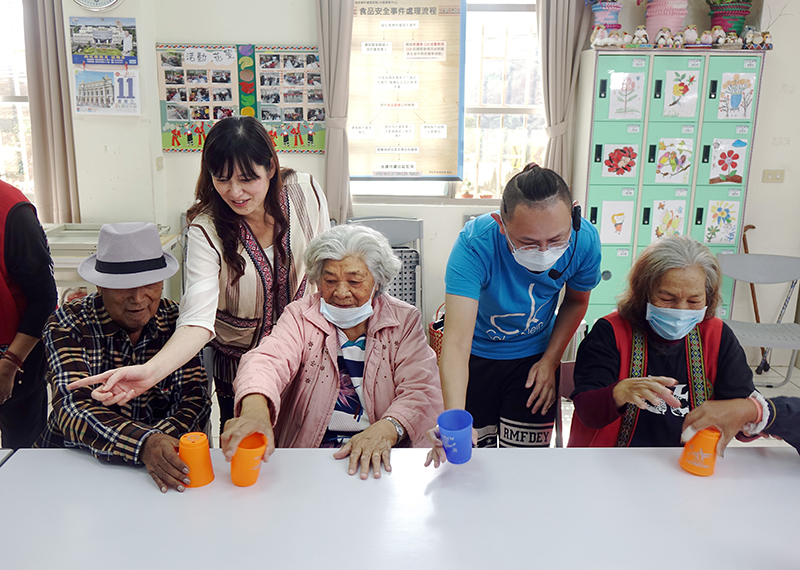
Recurring Tragedy Caused
by Cultural Insensitivity
Apart from the stereotype in the medical system, indigenous people are also mostly socio-economically disadvantaged. Hence, when a family’s main breadwinner falls ill, the hospital usually has to report to the social work system for its intervention and necessary assistance.
Take again the Truku patient for instance. He used to have an older brother who was also a construction worker and had the same surgery as he did. But unlike him, whose family is still able to provide support and care, his brother was left unattended in the hospital. His wife left home immediately after he got hospitalized, leaving him and their young children behind. While in hospital, the poor man even got a skin infection due to lack of care. “But the nurses and doctors back then knew nothing about cultural safety, nor were they aware that a disadvantaged family like this should be cared for by social workers,” says Yi-Maun. In the end, the patient’s brother died of septicemia after his fever persisted.
“Why should there be a necessary correlation between illness and ethnicity? Why is it that indigenous people have to be classified in the mainstream health care system?” Yi-Maun becomes increasingly bewildered by such questions that have been bothering her since her childhood. She bears witness to the discrimination of the mainstream society against indigenous communities leading to the recurrence of tragedy of the underprivileged, which seems impossible to reverse.
Hence, in 2001 she decided to return to the campus for further studies. She enrolled in the Graduate Institute of Aboriginal Health, Tzu Chi University, to focus on public health, hoping to find answers to her questions.
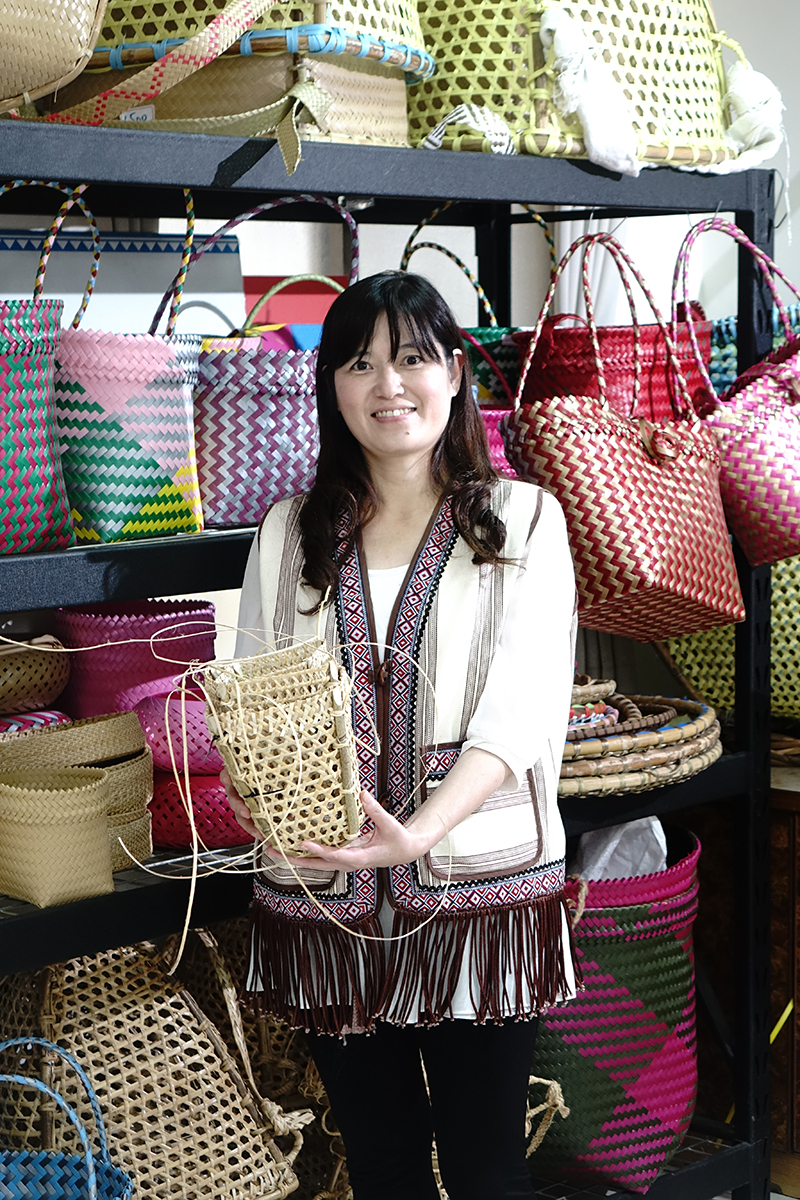
Introducing the Concept of Cultural Care
to Provide the Most Appropriate Care
Back then, when it came to the issue of healthcare for indigenous communities, the medical- and social work-related departments in Taiwan’s universities mostly focused on the aspects of how to reduce the incidence rate of diseases, to increase life expectancy, and on genetic studies, but seldom touched on the concepts of cultural safety, social determinants of health, and cultural care, resulting in indigenous people being equally disadvantaged in the socio-economic and medical systems.
“Therefore, we need to equip medical professionals with appropriate cultural sensitivity through systematic training and education. Only by doing so can we solve the problems faced by indigenous peoples in the medical and health care system,” Yi-Maun concludes. After earning a master’s degree in public health, she goes on to pursue her doctorate in medical sciences from the same school. She is not only the first Truku to obtain a doctoral degree, but also an avid advocate of incorporating indigenous cultural care into the medical system.
CULTURAL CARE
Cultural care refers to professional caregivers are equipped with the understanding of different cultural backgrounds of varied ethnic groups in such aspects as language, customs, diets, socio-economic conditions, etc., and the ability to provide patients with the most appropriate care based on their cultural knowledge.
In 2013, the Council of Indigenous Peoples (CIP), Executive Yuan, held its first National Conference on Indigenous Affairs. Under the agenda of health and social welfare, Yi-Maun formulated the topic of “building a healthy environment with cultural significance” and served as the convener of the committee. For the first time, the concept of “cultural care” has been formally introduced into the chapter on policies.
This in turn indirectly prompted CIP to rename the Community Day Care Centers for Indigenous Elderly to Tribal Culture and Health Station in 2014. Yi-Maun took on the task of instruction, traveling to 80 or so communities throughout the island to give training at local stations and spread the concept of cultural care.
“One of the important issues of cultural care is how to incorporate such cultural elements as traditional food, crafts and skills, language, and clothing into the care model.” Take delaying disability in older people, for example. We can engage community elders in activities featuring traditional local elements, like drawing community maps and weaving traditional backpacks, fishing baskets, and other everyday utensils. These activities can not only enliven their memories of how they lived in the past but create a connection with the cultural context at the same time to serve the purpose.
Yi-Maun went on to establish and direct the Taiwan Cross-Cultural Health Care Association (TCHCA) in 2018. In the following year, under the support of the Health Promotion Administration, Ministry of Health and Welfare, TCHCA trained Taiwan’s first batch of nearly 60 seed teachers for cultural care dedicated to delaying elderly disability in indigenous communities. She hopes that through the establishment of the training mechanism, the concept of cultural care can be more effectively implemented in every corner of the island.
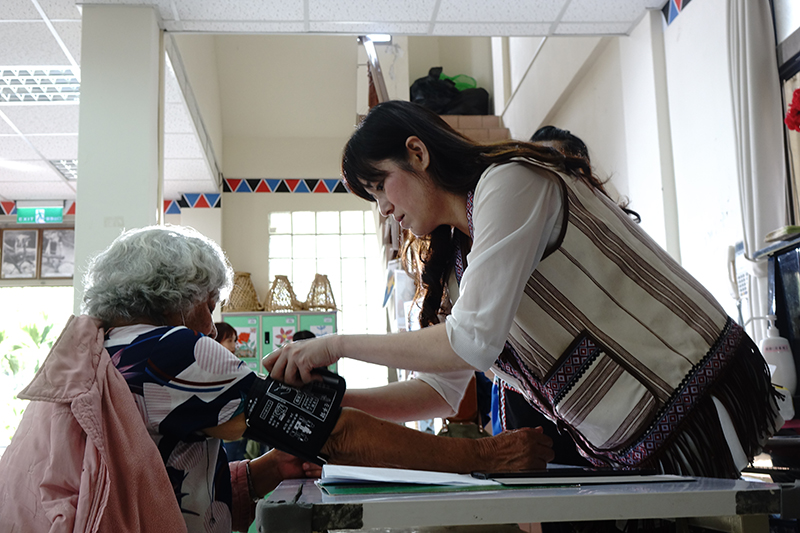
Eliminating Health Disparities
Through Passage of Indigenous Health Act
In recent years, although the gap between the healthy life expectancy of Taiwan’s indigenous people and that of all citizens has reduced from 16 to 8.2 years, the difference of nearly 10 years indicates that there is still much room for improvement in the relevant policies.
One of the most urgent tasks is to push for the passage of the Indigenous Health Act that addresses indigenous people’s rights to health and life. The act is a basic bill that can truly implement health care for indigenous peoples, as it concerns a wide range of issues, including personnel training, the model of cultural care, cultural safety, funding of health care, indigenous health information, and the establishment of specialized agencies by local governments.
“Our priority is to send this act, which has been delayed for 10 years, into the stage of discussion and perfect it through rolling amendment. Only through legislation are we able to defend our rights on a legal basis,” says Yi-Maun gently but firmly.
Having been working on indigenous health issues for nearly 20 years, Yi-Maun always remains soft and flexible, with a demeanor that is neither humble nor haughty, in seeking opportunities to open dialogue with mainstream society. “Some compatriots think that I’m a dove, which is too peaceful, and suggest me be more aggressive,” she says with a smile. Yet, it is her belief that only by establishing effective communication channels with mainstream society can we truly eliminate the health inequalities caused by ethnic differences and heal the historical trauma and damage done to indigenous communities by colonizers.




